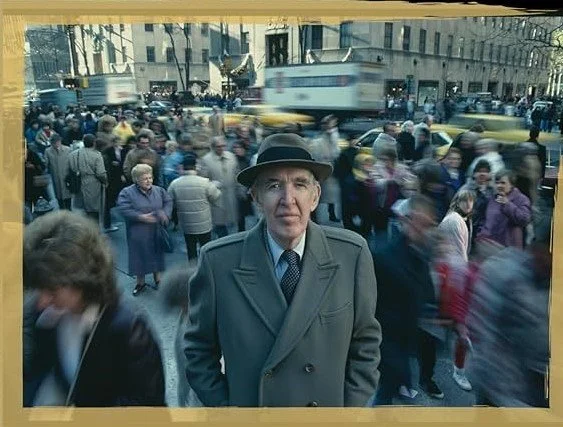William Whyte, the American Urbanist
It is nearly impossible to make it out of a planning program without learning about William Hollingsworth Whyte and his influence on urban design. He studied the intricate weave of social interactions in public spaces which formed the core of a fascinating discussion with author Richard Rein in the latest Booked on Planning podcast episode. Rein, drawing from his book The American Urbanist: How William Whyte's Unconventional Wisdom Reshaped Public Life, shed light on Whyte’s profound impact on how we view and interact with our urban environments. From the outset, it's clear that Whyte was no ordinary thinker. His unconventional path from journalism to urbanism allowed him to see the city through a unique lens, focusing on the social dynamics that animate public spaces.
In his book, Richard Rein articulates how Whyte’s early work, particularly his concept of group think outlined in The Organization Man, laid the groundwork for his later revolutionary ideas about urban design. This leap from analyzing corporate culture to urban spaces demonstrates Whyte’s deep sociological interests and his keen sense of inquiry. In our conversation with Rein on the podcast we get to how Whyte’s perspectives on the workplace and organizational dynamics, though initially separate from his urbanism work, eventually converged to influence his approach to city planning.
I found Whyte's capacity to maintain rigorous data integrity while also embellishing stories to engage and persuade his audience to be a fascinating contradiction. On the one hand he maintained strict adherence to data and observations, while on the other he took creative license to tell stories, both fictional and regarding his observations. This blend of empirical evidence and narrative flair, underscores Whyte’s effectiveness in shaping the discourse around urban spaces. The episode also doesn't shy away from some of the questionable aspects of Whyte’s character, such as his observations on “girl watching” or somewhat diminutive language towards his female researchers. Despite certain lapses, his support for Jane Jacobs and her pioneering work in urbanism is highlighted, painting a picture of a mentor who was ahead of his time in recognizing and championing female expertise in the field.
The podcast episode takes a timely turn as it reflects on the present-day implications of Whyte’s vision, especially in light of the COVID-19 pandemic's effects on urban life. Whyte’s advocacy for prioritizing people over cars in city planning finds resonance in contemporary initiatives to re-engineer main streets for pedestrian use. The discussion brings to life the serendipitous nature of public spaces that Whyte so passionately championed, offering a sense of optimism for the future of urban living. So many communities are finally heeding the advice of Whyte, decades after he first published it.
What was really interesting in reading The American Urbanist was uncovering the less known aspects of White's career, such as his military background and early fiction writing, which gives a better understanding of his multidimensional legacy. Whyte’s principles continue to shape the design and social fabric of cities worldwide. The book not only pays tribute to Whyte’s remarkable contributions but also inspires a new generation to view our urban landscapes with the same curiosity and passion that he did. As our cities face new challenges and opportunities, Whyte’s insights serve as a compass, guiding us toward more vibrant, inclusive, and dynamic urban spaces that foster human connection and creativity.





